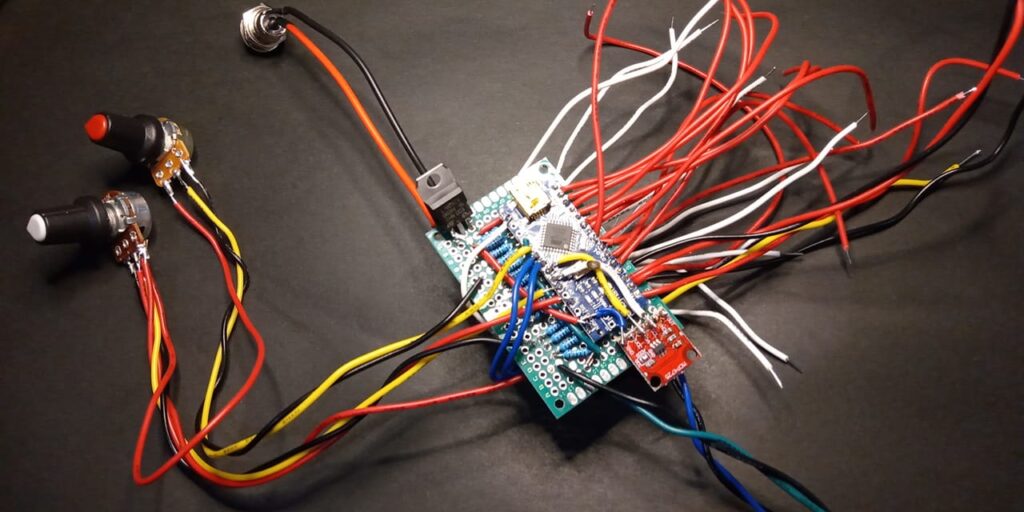Community, Leadership, Experimentation, Diversity, & Education
Pittsburgh Arts, Regional Theatre, New Work, Producing, Copyright, Labor Unions,
New Products, Coping Skills, J-O-Bs...
Theatre industry news, University & School of Drama Announcements, plus occasional course support for
Carnegie Mellon School of Drama Faculty, Staff, Students, and Alumni.
CMU School of Drama
Tuesday, March 23, 2021
Circuit Bending: Learn Something Useful by Failing
SoundGirls.org: Ever wonder about the strange noises that electronics make? Capturing that weird and turning it into music or art? Welcome to the world of circuit bending, where consumer gadgets are hacked into one-of-a-kind synthesizers. Officially circuit bending has been around for as long as circuits have existed. However, the popularity of coaxing music from frankensteined electronics paralleled the rise of synthesizers in the 1960s.
Subscribe to:
Post Comments (Atom)

3 comments:
I just recently took an Arduino class because we learned a little bit about breadboarding last semester in stagecraft and became really interested in Arduino. It’s honestly really cool and I am a little bummed that I haven’t had more time to invest in learning about this. I would like to learn more about using Arduino for lighting purposes rather than sound (that is just where my personal interest lie) but it is always interesting to read about how the two disciplines intersect (or at least how lighting tends to interfere with sound) I really liked how they talked about looking into other people’s ideas and going from there. Using others’ past trials and errors to create something new (and in return find their own discoveries and failures along the way) I myself like to jump into things (even if I don’t have the proper knowledge) and just experiment and try things out. I like that the author also has no shame in failure. We will all make mistakes at some point, you just have to learn from them and move forward!
The world of analog synths is so fascinating to me. I've really only experimented with synth plug-ins or makeshift digital synthesizers on programs such as Logic or Max, but obviously those are often modeled after the functionality and sound output, if not trying to directly replicate them as best as possible. I have a very self-recognized problem of not being able to make electronic-type things work very well (especially when it involves code) so circuit bending might be right up my alley! I also loved that the author mentioned that she was autistic, and I think it's really important to recognize how wonderful hands-on exploratory projects can be (and their output, if it's drone-y or similar) to those with sensory processing (or similar) disorders. Getting lost in a project that may not have a very clear end can sometimes be frustrating, but other times it's the perfect thing to put anxiety or depression on the back burner in my head.
Obviously I love electronics, and have actually been a casual fan of circuit-bending enthusiasts (check them out on reddit). In an increasingly digital world, the art of analog signal manipulation is slowly dwindling, reserved more for highly engineered systems. Digital consoles and processors have given people unbelievable power in the audio world. I've used Logic for keyboard programming for musicals and the tools that come with it are unbelievable. However, the art of manipulating a pure analog signal is still such a beautiful process, and many audiophiles and musicians will swear by these processors. Take that and combine it with pushing electronics beyond what they were designed to do creates such a cool niche hobby. Theatre has always been the world that bastardizes tools and practices from other industries, and this is just another cool example of that practice. I want to try to do more of this as I continue to expand my electronics workstation, and this article just makes me more interested in starting.
Post a Comment